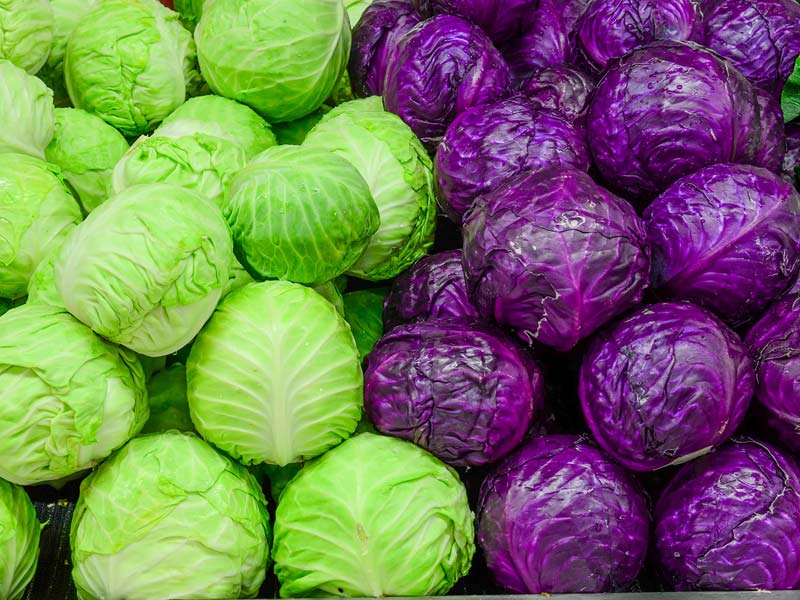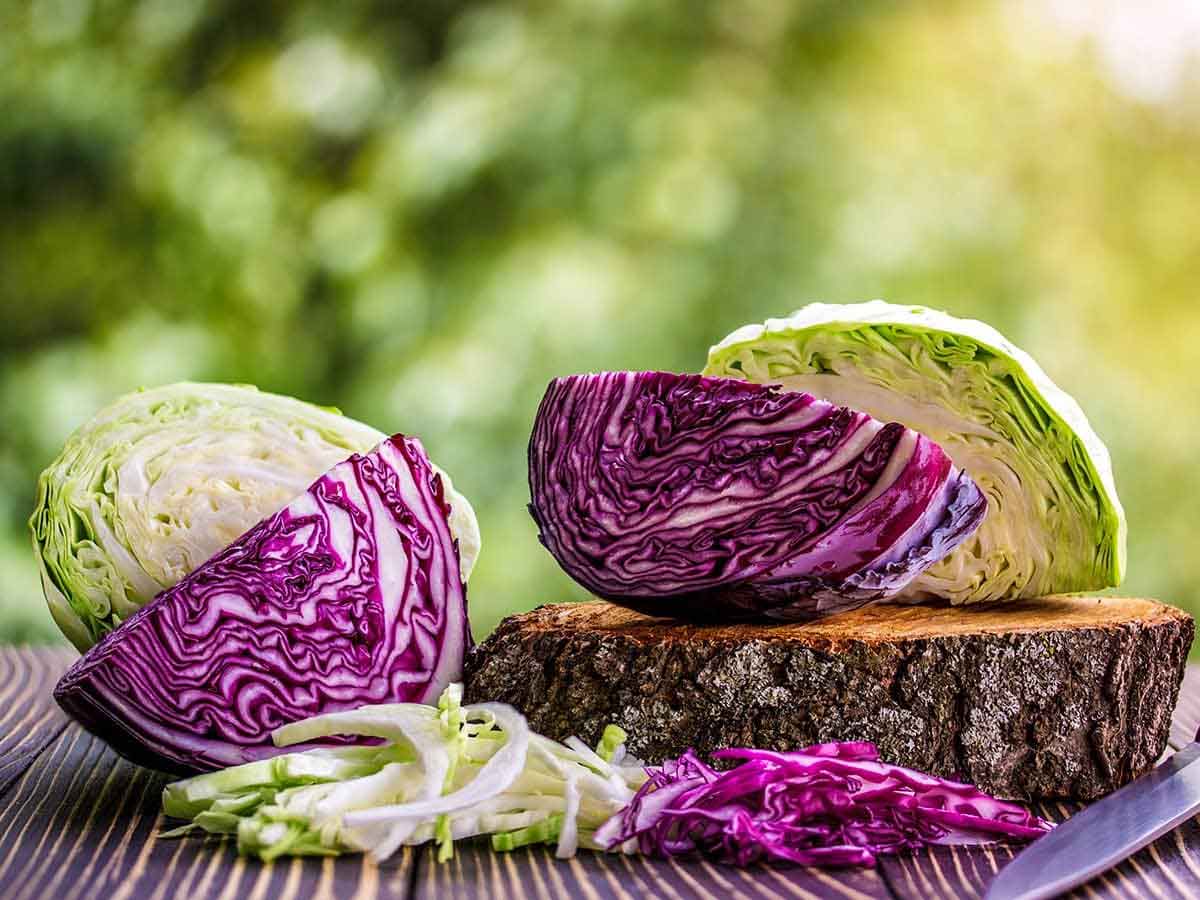As a cruciferous vegetable belonging to the Brassica genus, cabbage is botanically related to other major players in the vegetable world, such as kale, broccoli, and Brussels sprouts. Similar to its leafy green cousins, cabbage has a surprising number of potential health benefits due to its high antioxidant content. In addition to being rich in anti-inflammatory compounds, cabbage also contains high levels of vitamins C and K, which have their own health benefits.
Cabbage Helps Lower Inflammation
The capacity of cabbage to lower inflammation is the foundation of much of its health benefits. Every crunchy leaf contains an abundance of antioxidants, which are edible compounds that drive out dangerous free radicals.
 The most common antioxidants in red cabbage are cyanidin, while the most common antioxidants in green cabbage are kaempferol, quercetin, and apigenin, according to research published in the International Journal of Food Sciences and Nutrition. These could have a big impact on your health. For instance, kaempferol has been associated with the prevention of cancer, and studies indicate that cyanins have anti-obesity, anti-diabetic, and anti-cancer properties.
The most common antioxidants in red cabbage are cyanidin, while the most common antioxidants in green cabbage are kaempferol, quercetin, and apigenin, according to research published in the International Journal of Food Sciences and Nutrition. These could have a big impact on your health. For instance, kaempferol has been associated with the prevention of cancer, and studies indicate that cyanins have anti-obesity, anti-diabetic, and anti-cancer properties.
Cabbage Can Help Fight Cancer
The potential of cruciferous vegetables to combat cancer has received a lot of attention in recent years. Under the cruciferous family, cabbage has a special nutrient matrix that makes it a valuable addition to any anti-cancer diet.

First off, the U.S. Department of Agriculture (USDA) states that cabbage is a great source of vitamin C, containing 25 milligrammes per cup. Studies indicate that a diet rich in vitamin C may help prevent pancreatic, breast, and lung cancers.
Also read: Planning dinner? Avoid these 6 foods for better sleep
Cabbage Helps with Digestion
 Cabbage is a good source of fibre and may help reduce digestive problems like constipation and diarrhoea. According to the Mayo Clinic, the insoluble fibre in vegetables is especially helpful for digestion because it gives stool more volume and encourages regular bowel movements. However, the sulfuric compounds in cabbage may cause bloating and gas in certain individuals. To find your tolerance threshold, you might have to conduct some experiments.
Cabbage is a good source of fibre and may help reduce digestive problems like constipation and diarrhoea. According to the Mayo Clinic, the insoluble fibre in vegetables is especially helpful for digestion because it gives stool more volume and encourages regular bowel movements. However, the sulfuric compounds in cabbage may cause bloating and gas in certain individuals. To find your tolerance threshold, you might have to conduct some experiments.
Cabbage Is High in Vitamin C
 While you may think of citrus fruits like oranges and lemons when thinking of vitamin C, cabbage can also be a good source of the vitamin. Cabbage contains vitamin C, which has several health benefits, including the potential to prevent cancer. Let’s start with your skin. According to research, it may help one look younger by encouraging the production of collagen. Additionally, some studies have connected increased vitamin C levels to decreased UV ageing signs and skin signs of ageing.
While you may think of citrus fruits like oranges and lemons when thinking of vitamin C, cabbage can also be a good source of the vitamin. Cabbage contains vitamin C, which has several health benefits, including the potential to prevent cancer. Let’s start with your skin. According to research, it may help one look younger by encouraging the production of collagen. Additionally, some studies have connected increased vitamin C levels to decreased UV ageing signs and skin signs of ageing.
Cabbage Boosts Heart Health
Since inflammation and cardiovascular health are closely related, it should come as no surprise that cabbage, which is high in antioxidants, is a heart-healthy food. Red cabbage’s cyanins and green cabbage’s kaempferol and quercetin may support heart health, according to some research. A study that tracked the diets of older women and was published in February 2021 in The British Journal of Nutrition discovered that those who consumed more cruciferous vegetables had lower levels of abdominal aortic calcification, a risk factor for cardiovascular events. Take a cabbage and crunch away to support heart health and many other advantages!
A study that tracked the diets of older women and was published in February 2021 in The British Journal of Nutrition discovered that those who consumed more cruciferous vegetables had lower levels of abdominal aortic calcification, a risk factor for cardiovascular events. Take a cabbage and crunch away to support heart health and many other advantages!

























